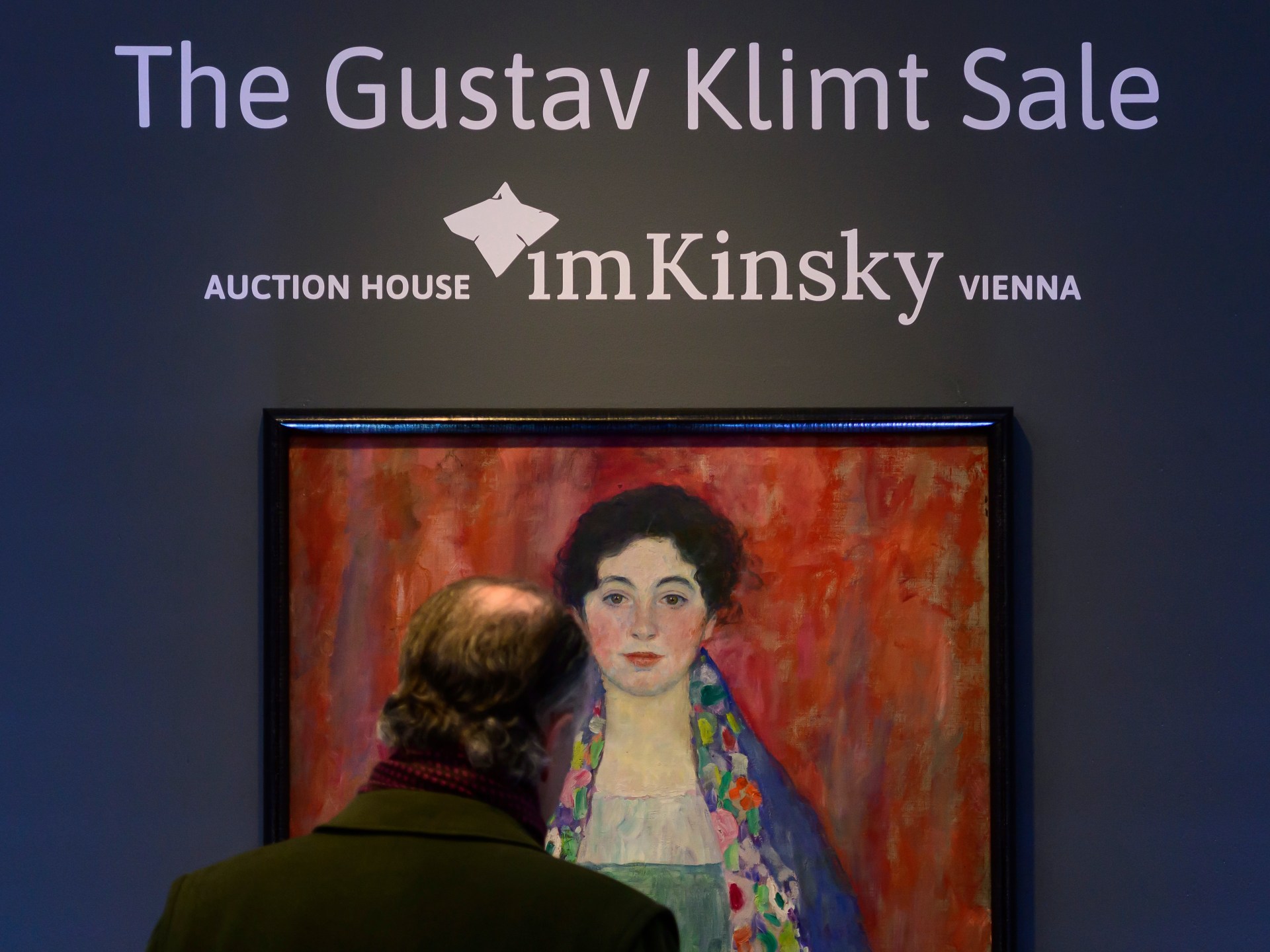Portrait of Miss Lieser, a painting of a young woman left unfinished due to Klimt’s death, was long believed to be lost.
A portrait of a young woman by Gustav Klimt that was long believed to be lost has been sold at an auction in Vienna for 30 million euros ($32m).
The Austrian modernist artist started work on the “Portrait of Miss Lieser” in 1917, the year before he died, and it is one of his last works. Bidding started at 28 million euros ($29m), and the sale price on Wednesday was at the lower end of an expected range of 30-50 million euros ($32m to $53m). The buyer was not identified.
Im Kinsky, the auction house handling the sale, said that “a painting of such rarity, artistic significance, and value has not been available on the art market in Central Europe for decades”.
The intensely coloured painting was auctioned on behalf of the current owners, Austrian private citizens whose names were not released, and the legal heirs of Adolf and Henriette Lieser, one of whom is believed to have commissioned the painting.
It is not entirely clear which member of the Lieser family was the model.
Klimt left the painting, with small parts unfinished, in his studio when he died of a stroke in early 1918 and it was given to the family who had commissioned it, according to the auction house.
The Jewish family fled Austria after 1930 and lost most of their possessions.
It is unclear exactly what happened to the painting between 1925 and the 1960s, a period that includes the Nazi dictatorship. Austria was annexed by Nazi Germany in 1938.
The auction house says there is no evidence that the painting was confiscated then, but also no proof that it was not. It ended up with the current owners through three successive inheritances.
In view of the uncertainty, the current owners and the Liesers’ heirs drew up an agreement to go forward with the sale under the Washington Principles, which were drafted in 1998 to assist in resolving issues related to returning Nazi-confiscated art.
Last year, a late-life masterpiece by Klimt, called Lady with a Fan, sold for 85.3 million British pounds ($108.4m), making it the most expensive artwork ever auctioned in Europe.
Klimt’s Portrait of Adele Bloch-Bauer II sold at a New York auction in 2006 for $87.9m, and his landscape Birch Forest sold at Christie’s in New York in 2022 for $104.6m.
Two more of his portraits are reported to have sold privately for more than $100m.
Check out our Latest News and Follow us at Facebook
Original Source

